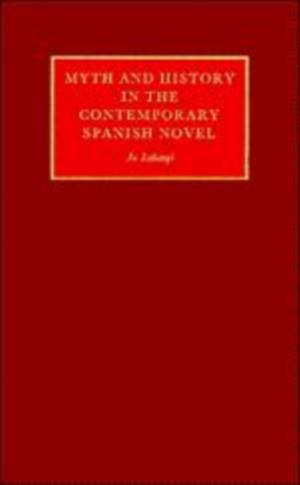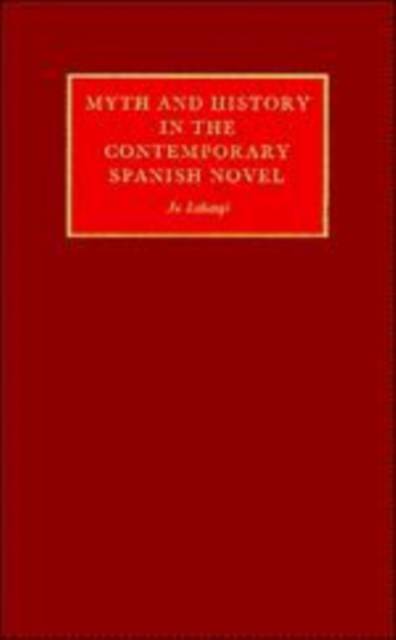
Door een staking bij bpost kan je online bestelling op dit moment iets langer onderweg zijn dan voorzien. Dringend iets nodig? Onze winkels ontvangen jou met open armen!
- Afhalen na 1 uur in een winkel met voorraad
- Gratis thuislevering in België vanaf € 30
- Ruim aanbod met 7 miljoen producten
Door een staking bij bpost kan je online bestelling op dit moment iets langer onderweg zijn dan voorzien. Dringend iets nodig? Onze winkels ontvangen jou met open armen!
- Afhalen na 1 uur in een winkel met voorraad
- Gratis thuislevering in België vanaf € 30
- Ruim aanbod met 7 miljoen producten
Zoeken
€ 67,95
+ 135 punten
Omschrijving
Since the Civil War, Spanish novelists have produced a noteworthy body of fiction. In this book, Jo Labanyi provides detailed textual analysis of six of the most important novels to have been written during this period: Martin-Santos' Tiempo de silencio, Benet's Volverás a Región, Marsé's Si te dicen que caí, Cela's San Camilo, 1936, Juan Goytisolo's Reivindicación del conde don Julián, and Torrente Ballester's La saga/fuga de J.B. The focus on myth as a response to history is intended as a corrective to archetypal myth criticism, and stresses the variety of ways in which Spanish novelists have resorted to myth, and the need to relate their use of it to the historical context of Francoist ideology. The book also raises important general issues about the ways in which fiction, as a form of mythification, relates to the real world.
Specificaties
Betrokkenen
- Auteur(s):
- Uitgeverij:
Inhoud
- Aantal bladzijden:
- 292
- Taal:
- Engels
Eigenschappen
- Productcode (EAN):
- 9780521288460
- Verschijningsdatum:
- 2/03/2011
- Uitvoering:
- Paperback
- Formaat:
- Trade paperback (VS)
- Afmetingen:
- 152 mm x 229 mm
- Gewicht:
- 430 g

Alleen bij Standaard Boekhandel
+ 135 punten op je klantenkaart van Standaard Boekhandel
Beoordelingen
We publiceren alleen reviews die voldoen aan de voorwaarden voor reviews. Bekijk onze voorwaarden voor reviews.











